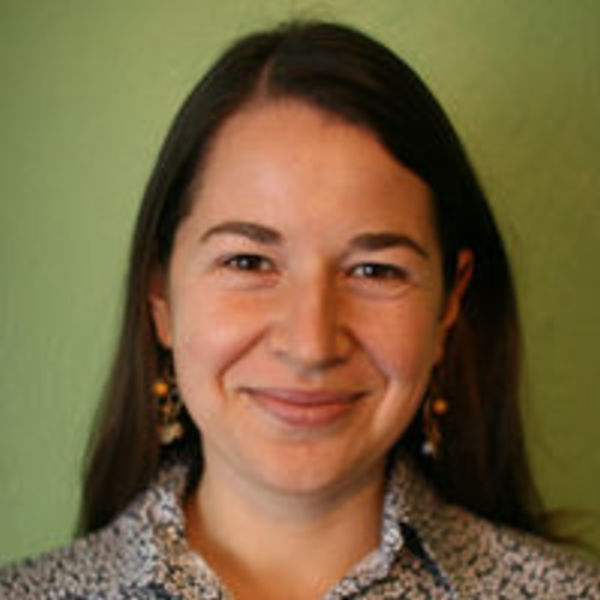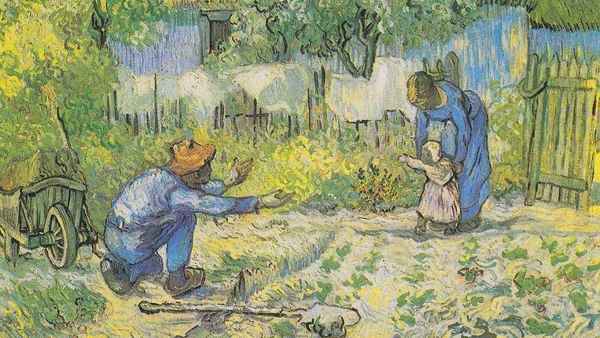Education is power. I’ve heard this many times, and I don’t disagree. However, our educational system is in crisis. Our diocesan schools are in crisis, and the solutions coming from the top don’t really seem to be helping. Parish schools continue to close. Test scores don’t actually measure the health of a school or the quality of the learning taking place there. More parents are seeking other options, choosing to homeschool or find alternative models. There is less and less faith in institutional schools, and as families pull out, the sense of community in these institutions falters.
As a parent, I totally get it. I too find it difficult to trust the education of my children to a large scale operation that often seems bureaucratic and distant. I like to think outside the box, something many “old-school” schools aren’t comfortable with. I would like to offer, however, that the solution is perhaps simpler than a complete overhaul of the system. I would like to offer that a school can become a place of joyful learning if a shift occurs in the imagination of the educators and administrators, if the paradigm is about community and not about measurable outcomes.
I have had a very non-traditional history with education, both my own and as an educator. I have experienced homeschooling, international school in Southeast Asia, public school in America, a college Great Books program, a Catholic elementary school in the Honduran campo, a private Montessori school where I helped start the middle school, and I now run a co-operative preschool out of a friend’s home.
I deeply believe in the possibility of school as real community, both for the children attending and the parents and teachers involved. I have experienced real community to varying degrees in each of the schools I was privileged to attend as a student and teach in as an adult. I am extremely disheartened by any school which does not provide this for the families and staff investing in the school. By real community, I mean a context in which real friendship, real conversation, and real learning all take place as a somewhat seamless transition with the rest of life. That school and life blur to some (if not a great) degree.
Think about it. People spend most of their childhood, adolescence, and young adulthood in school. No matter the style of education, the vast majority of their waking hours are spent “doing school,” and, thus, I believe this experience should be deeply integrated with the authentic relationships, values, interests, and work of the rest of life.
Two Role Models of Personalist Education
I was given a vision for this by two women whose own vision and passion for education profoundly inspired and guided me. The first was my own mother. She was ahead of her time as a homeschooling, radical homemaker; in fact others often tried to dissuade her from keeping us home to educate us, despite her background in elementary education. She picked and chose from a variety of resources and curricula and crafted a model that was both relaxed in schedule and rigorous in standards. She wove into our life time for service to others, athletics, incredible literature, theater, and music, all the while never really calling it “school” but simply making joyful learning a centerpiece in our home and family.
My parents’ desire to expose us to another side of the earth brought us to Indonesia and Thailand for my middle school years. This experience had a profound effect on all of us, and gave me a kind of “out of the box” perspective I have attempted to cultivate and pass along to my own children. My mother has always been something of a revolutionary, though she has lavished most of her fire on her children and close circle of community. I am forever grateful.
The second woman who left an indelible mark on my educator’s (and woman’s) soul was a friend and mentor whom I consider an icon of community and education, Felicia Leon-Driscoll. She recently passed from this earth into the heavenly community of friends and saints, and I know she is continuing to advocate for and love the child from there.
She and her husband Dan founded Good Shepherd Montessori School in South Bend in 2000 along with a small group of caring parents in a church basement with sixteen children. The heart of their mission was always the good of the child, as well as integrating Dr. Maria Montessori and Sophia Cavalletti’s methods for education and catechesis.
One of the things that strikes me most about the Driscolls’ and particularly Felicia’s vision for education is the deeply personalist approach to each child and each teacher and each family’s place in the school community. Personalist as the opposite of institutional or utilitarian. This is palpable simply upon entering the building or the grounds (which more closely resemble a small farm or community garden), or, attending one of Good Shepherd’s events. It is obvious that there is real friendship and real life happening through real relationships, and one feels a strong pull to be a part of it.
Felicia’s special charism was one of joyful hospitality and a celebration of the human person. I have never known anyone more passionately aware of the great potential in each person and more likely to draw it forth from whomever she met. She delighted particularly in children and motherhood, her areas of expertise being the Catechesis of the Good Shepherd and birth through the Bradley method. Both of these are prime examples of out-of-the-box educational philosophies which focus on the human person as a dignified and reverenced subject (think relationship), not an object to whom one transmits information (think computer).
The Person as Priority
When people are the subjects—and each person’s spiritual, intellectual, physical, and emotional flourishing is the real question, not test scores or rankings or budget—I believe everyone benefits. Let the test scores and the rankings and the budget worry about themselves. The pagans chase after these things. We should seek first the Kingdom and his righteousness, and all these things will follow as well (Mt 6:31-33, paraphrase mine). What were Jesus’ priorities? He was a teacher after all. It was the person. Each person. Each soul. His model applies directly to education now.
Some examples of what such a shift might look like would be more retreat days for teachers. A greater fostering of community in the staff lounge and at staff meetings. Thinking through each child’s particular needs within the context of the whole. An emphasis on flexible learning spaces that could shift with the weather, the liturgical seasons, the teacher’s particular teaching style. Home visits and potlucks where families can be integrated into the environment of their child’s learning.
What I’m asking us to imagine is not a perfect setting for a perfect education. This simply doesn’t exist. I’m asking for a totally human approach to learning that involves the whole person. It’s messy, it’s not easily measurable. Relationships are difficult and take work. You don’t just clock out on community. But when the person is at the heart of an endeavor, the questions you ask are different and the way you assess outcomes are different. In essence, we are set free to creatively and collaboratively imagine what is actually best for each person, and space is opened up for love. The rest follows.


